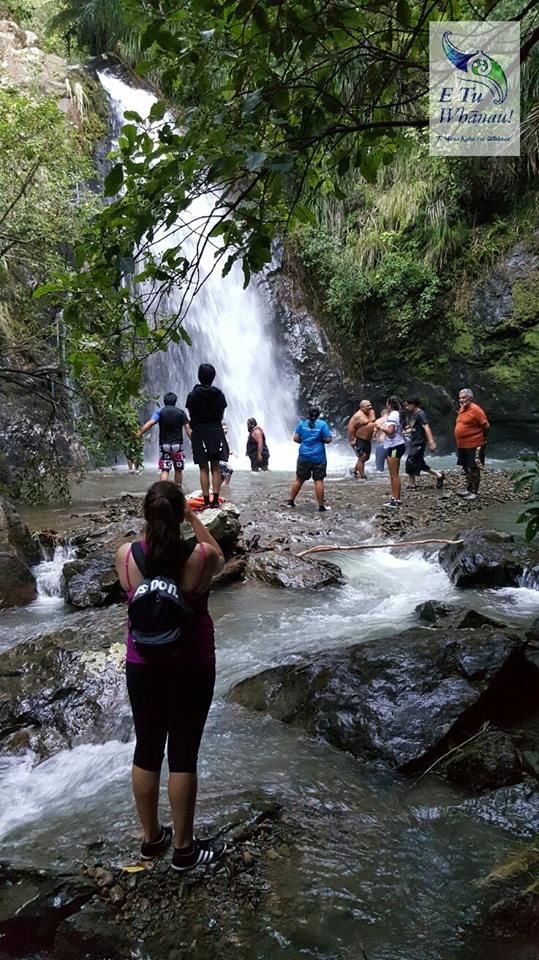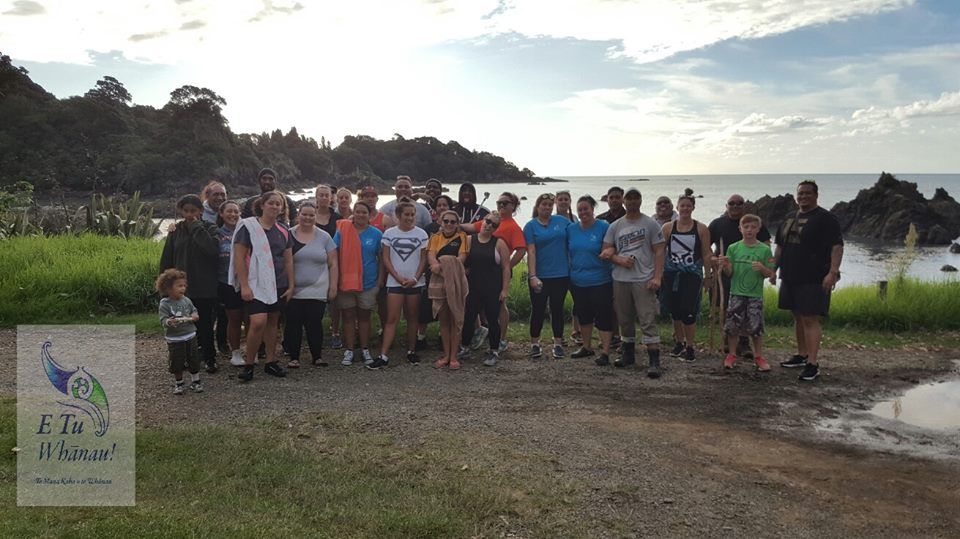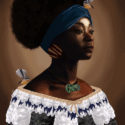 Two rangatahi hui highlight E Tū Whānau’s commitment to meaningful and long term change in the wellbeing of all in Te Ao Māori, both now and in the future. This is particularly important given that over 50 percent of Māori are under 25 years of age.
Two rangatahi hui highlight E Tū Whānau’s commitment to meaningful and long term change in the wellbeing of all in Te Ao Māori, both now and in the future. This is particularly important given that over 50 percent of Māori are under 25 years of age.
The first hui was hosted by Te Whānau-ā-Apanui iwi and held at Pahaoa marae in Te Kaha. Over a period of four days, young Māori leaders from across the country gathered together to learn, share ideas and skills as E Tū Whānau rangatahi kahukura (leaders or change agents) and plan a collective E Tū Whānau youth strategy for the future.
Their hosts also offered them an opportunity to experience the natural world surrounding the marae and build an understanding of how the natural systems around their whenua and moana, and their conservation, can support whānau to survive and thrive.
Deepen experience of being Māori
E Tū Whānau kaimahi, Parehuia Mafi says that for many of the young people it was an opportunity to deepen their experience of being Māori.
“They can mihi and say who their people are and where their mountain and river is, but some of our urban rangatahi have never really experienced that mountain or that river, or the natural world in general.”
“For example, when some went diving for the first time, one young tane from Wellington commented that he had to pay people to go diving in his rohe. They had to pay people to have that experience on their own land. Now if that is not an indicator of dislocation, I don’t know what is.
“That young man reminded the home people not to take what they had for granted. He was part of a rich exchange typical of the generational sharing of ideas and experience that went on over those four days.”
The second hui for 50 mainly Auckland rangatahi aged between 12 to 17 years, was held a week later at Otamatea Marae in Te Tai Tokerau.
‘Mahuri Totara-Growing Tomorrow’s Leaders Today’ was hosted by local whānau and Te Rūnanga o Ngāti Whātua in partnership with the indigenous education and training organisation, Te Korowai Aroha o Aotearoa which shares E Tū Whānau’s aims and values.
It was part of an ongoing series of Te Korowai Aroha o Aotearoa rangatahi hui and a dozen young people who had been mentored at earlier hui returned as trained mentors to support the newcomers.
E Tu Whānau values in action
Whanaungatanga and teina-tukana relationships are fundamental to these gatherings as are all E Tū Whānau’s values which rangatahi practice as ways to keep themselves safe by taking individual and collective responsibility for own behaviour.
“E Tu Whānau values show young people that they can live well every day of their lives if they choose. They told me that when they’re are all living those values, they feel safe and loved and they experience a feeling of togetherness,” says Parehuia.
These hui are special, says Parehuia, in that they create a space for whānau to express their own truth, a space where true learning and transformation can take place.
“We do this by using our own tikanga and honouring our own principles of whānau so that all people – young and old – are able to express, learn, share and, where they need to, to heal.”

Rangatahi at the hui hosted by Te Whānau-ā-Apanui iwi and held at Pahaoa marae in Te Kaha



